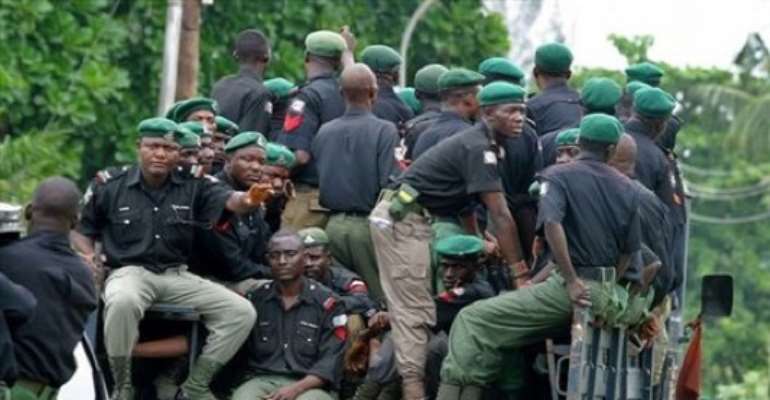CALL FOR URGENT REVIEW OF NIGERIA'S SECURITY STRUCTURE

Who in Nigeria feels safe at present? Who feels comfortable walking the streets of our cities? Who, even, would feel secure within one of our police headquarters?
It is clear to all that Nigeria’s security systems are failing. No progress has been made towards abating the threat of terrorist attacks, and the police have shown themselves incapable of even holding onto a prime suspect once arrested.
This is the kind of incompetence usually reserved for farcical comedy. Indeed, it would be laughable, if it were not so serious.
Crippled by incompetence
It has been suggested that when the Boko Haram violence began, our security forces had the opportunity to act quickly to stem the threat – and that their failure to do so was the result of being more interested in making arrests that would allow them to extort large amounts of bail money.
Of course the police force has now become a prime target for attacks themselves; with this in mind, it seems unlikely that any continued failures are the result of a lack of motivation. Instead, our security systems appear to have been crippled by decades of incompetence and immoral practice.
It is also true, as President Goodluck Jonathan has pointed out, that terrorism is still a relatively new threat for Nigeria.
This by no means excuses all, or even most of the failures seen to date (surely detaining a suspect is not a new task for police). What it does mean is that our security forces must acknowledge the need for a complete and systematic review and overhaul. Nigeria needs an entirely new security system, completely purged of all the failings, inadequacies and embarrassments of the past.
President Goodluck Jonathan has already taken the first steps towards achieving this, by getting rid of Mr Hafiz Ringim as Inspector General of Police, retiring other senior members, and ordering an urgent review of the police by a special committee.
Within its remit, the committee is tasked with determining the causes of “the collapse of public confidence in the police”, and “identifying those that can no longer fit into the system due to declining productivity, age, indiscipline, corruption and/or disloyalty.” It is also asked to assess current practices within the force, including training and personnel development.
This is certainly no small task. If it is to succeed, the committee and those involved in implementing its recommendations will need to be fearless, ruthless, and thorough. Let no one be in doubt: Nigeria’s security systems are in crisis, and the only way to resolve this effectively is through sharp intervention.
Comprehensive and holistic transformation
In leaving no stone unturned, the committee should consult with groups from both inside and outside the system, assessing not only what has gone wrong but why.
Among the most obvious questions (and therefore most likely to be overlooked) are: who are our police and even more pertinently, what are their motivations? We need to look long and hard at recruitment, assessment and training processes, so that correct principles and priorities are instilled from the start.
To quote a recent comment from a security expert, “A policeman should not be immune to prosecution, if he is found to live above his means. The same should be true of all security agencies if professionalism and patriotism are to be elevated.” That this needs to be stated says a lot.
One problem that has been identified is that many of those who join the forces are primarily motivated by the need to make ends meet – which is understandable and human, but not a source of strength or guarantee of integrity.
Legal expert Mohammed Fawhinmi has said that those in the lower ranks “are not given any self-worth and are further impoverished by the deprivation of the welfare package they are entitled to.” As a result, they are neither motivated nor empowered to do their jobs effectively.
Change must therefore come from both the lowest and highest levels, taking a holistic approach that accounts for human factors as well as operational considerations. Every single member of the force must have a clear focus, clearly defined role – and a clear conscience. Each individual should be empowered to perform at the highest level possible, while also understanding that no one is above or outside the law.
Against such critical issues, there can be no room anywhere within the system for weakness of any kind.
